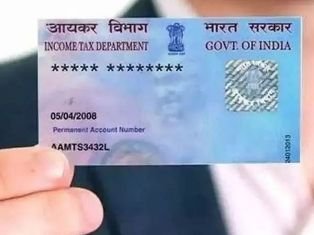PAN card is one of the most important documents in our country and we all know the importance of PAN card. The PAN card is used for several transactions within India and also there are certain rules for the issue of PAN card and for the use of PAN card. So today in this article we will discuss with you the Pan Card Rules for the year 2020. We will also provide you with all the details which you have to keep in mind while you are applying for you PAN card or using your PAN card number for certain transactions.
Table of Contents
New Rules PAN Card 2020
PAN Card is one of the most important documents in our country. As we all know that the PAN card is used for tax saving services and also many of the other services present in India. PAN card is important because it is one of the most vital identity card present in our country. Nowadays if you do any transaction which is heavily dependent on large funds then, you have to give your PAN Card as an identification proof that you are a person who has been providing taxes to the government of India every year.
Pan Card Application Form Online
Importance Of PAN Card
As we all know that the NRIs are the people who are temporarily shifted to one country for a specific period of time but if you are NRI that has been living in India for quite some time then you can get a PAN card to recover your other services provided by the government of India Although it is not mandatory for an NRI to hold a PAN card. For example, if you want to buy any property in India then you have to apply for your PAN card because you cannot do that without the PAN card. Similarly, there are many activities in which the presence of PAN card is required.
Rules For PAN Card
As mentioned above there are certain Pan Card Rules which are applicable if you are using your PAN card for specific transactions:-
- The most important rule is that no one should mention the wrong PAN number while going through any of the transaction. If you by mistake fill in your wrong PAN number in your application form or give wrong PAN number to the concerned authority, then you have to submit a fine of 10000 Rupees. Giving wrong Aadhaar Card number can also end up with the same amount of fine.
- Another role as made by the concerned authority is that if you have two copies of different PAN cards then you will end up with a fine of rupees 10000. PAN card can only be one throughout the lifetime of a citizen so, duplication of PAN card will result in a fine.
Transactions Requiring PAN Number
Given below are the transactions in which submission of PAN card is necessary:-
- If you are buying or selling two-wheeler or four-wheeler vehicle.
- While opening a bank account.
- If applying for a debit or credit card in the bank.
- While opening a Demat account.
- If paying cash of an amount exceeding ₹50,000 to a hotel or restaurant against bill at any one time.
- If paying cash of more than Rs. 50,000 in connection with travel to any foreign country or payment for the purchase of any foreign currency at any one time
- If buying –
- Mutual Funds
- Debentures
- Bonds
- Shares all worth more than ₹50,000
- If depositing cash of over ₹50,000 in a day in any bank.
- If paying cash of ₹50,000 during any one day for the purchase of bank drafts or pay orders or banker’s cheques from a banking company or a co-operative bank
- when your fixed deposit exceeds ₹50,000 in one go or aggregating to more than ₹5 lakh during a financial year.
- If paying more than ₹50,000 in a financial year to pre-paid payment instruments.
- If paying more than ₹50,000 in a financial year as life insurance premium.
- Selling or buying of securities, other than shares for an amount exceeding ₹1 lakh per transaction
- Sale or purchase, by any person, of shares of a company not listed on a recognised stock exchange for an amount exceeding ₹1 lakh per transaction.
- The Sale or purchase of any immovable property for an amount exceeding ₹10 lakh or valued by stamp valuation authority referred to in section 50C of the Act at an amount exceeding ₹10 lakh.
- Sale or purchase of goods or services of any nature other than those specified above for an amount exceeding Rs. 2 lakh per transaction.
